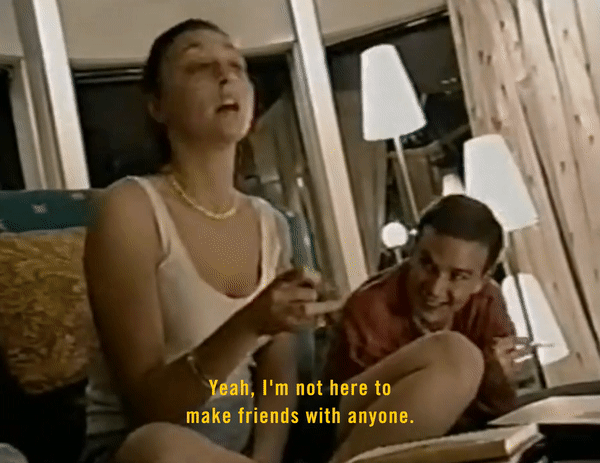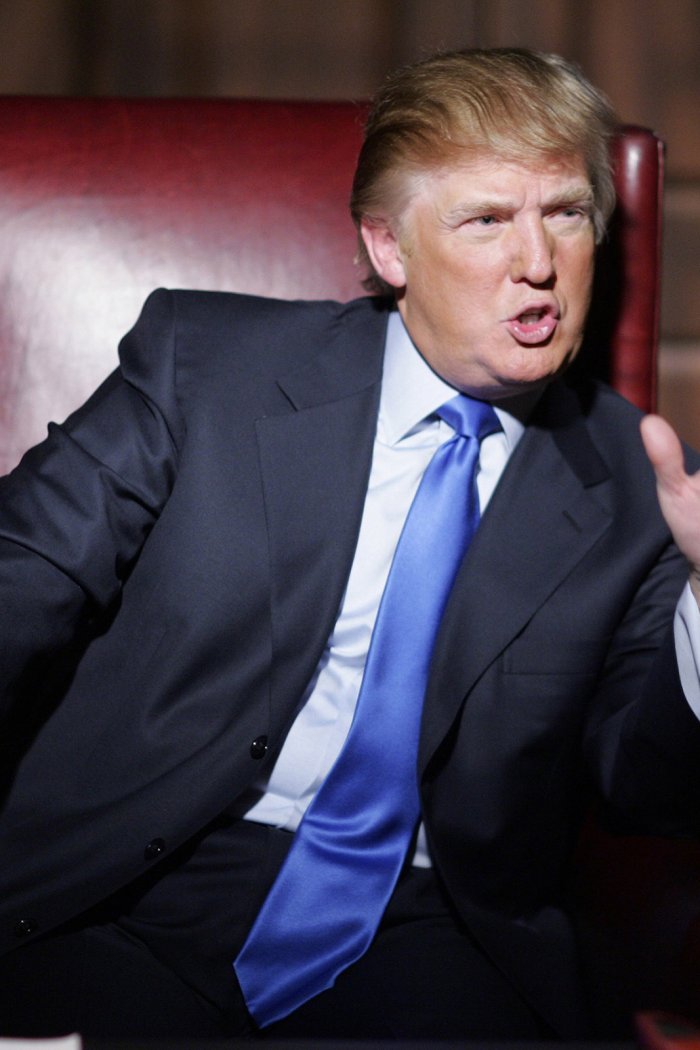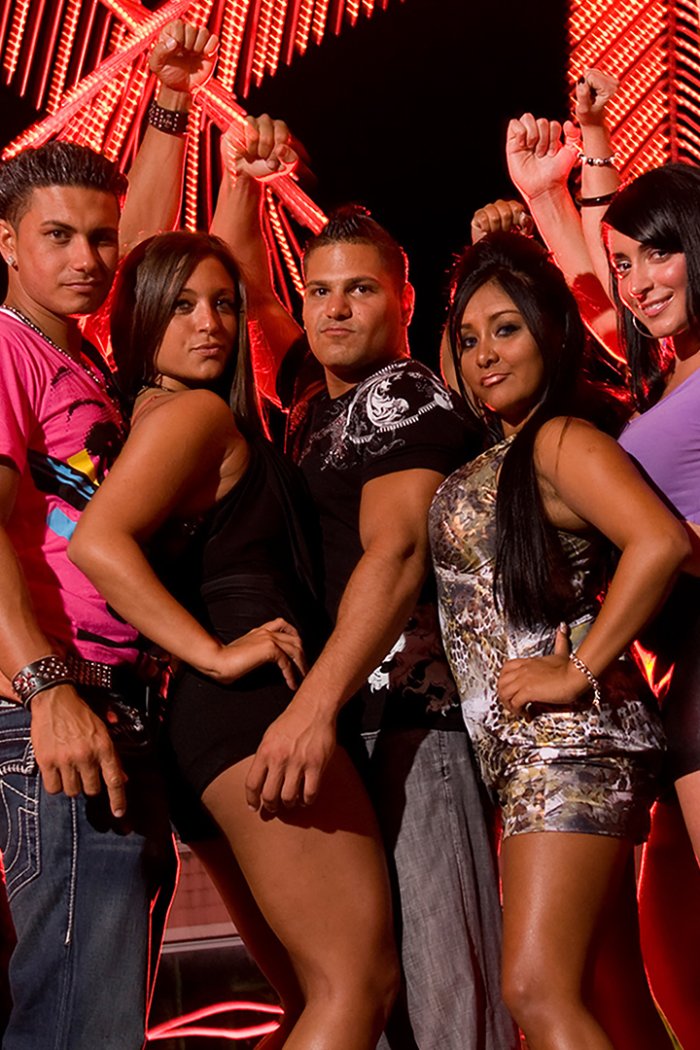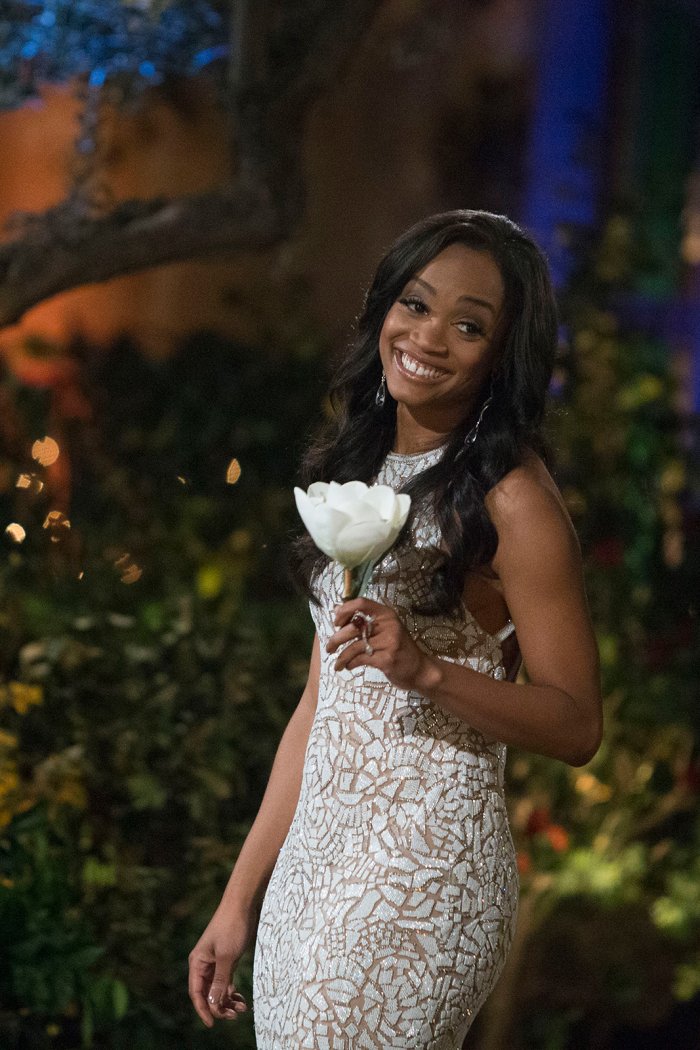At first it was funny. About 14 years ago, I was knee-deep in video clips I’d collected of competitive reality show contestants uttering a quintessential phrase: “I’m not here to make friends.” A crying, aspiring covergirl on America’s Next Top Model. A cutthroat groupie vying for Bret Michaels’ attention on Rock of Love. Omarosa establishing her public profile on the first season of The Apprentice. I assembled those clips into a supercut that would go on to be viewed more than 320,000 times in the second half of 2008—a viral figure by the standards of YouTube’s third year. Supercuts need not have a message more profound than “Repetition is funny,” but that phrase, I thought, really captured the spirit of a genre. On an episode of This American Life that aired the following year, I called the words “a battle cry that defines the philosophy underpinning all of competition reality TV.”
The usage of “I’m not here to make friends” grew from there. The phrase is discussed briefly in Noah Baumbach’s acclaimed 2013 film Frances Ha, and a version of it served as the title of former Bachelor winner Courtney Robertson’s 2014 memoir. Multiple podcasts riff on the theme, from the now-defunct Bachelor podcast Here To Make Friends to the reality TV-focused Not Here To Make Friends. Contestants on reality shows, especially those that pit people against each other in the name of competing for love, say the phrase, or something close, to this day. (Jay on this summer’s Love Island: “I’m not here to make friends. I’m not here for seasonal boyfriends.”)
Read more: The 50 Most Influential Reality TV Seasons of All Time
Even I, as the person who called attention to the popularity of the phrase more than a decade ago, didn’t realize exactly how ubiquitous it was. In that This American Life episode, I traced the reality TV origin of “I’m not here to make friends” back to the first season of Survivor. In fact, it had already been uttered—some four years prior—in a noncompetitive context on the fifth season of The Real World (the Miami season), the show that, fittingly, established reality programming as we know it. During a meeting about an ill-fated business venture, cast member Flora Alekseyeun uttered the phrase to her housemates, whom she, in fact, was there to make friends with, per the show’s ostensible mission. (Technically, it was her co-star Cynthia Roberts who told the group, “She’s not here to make friends,” only to have Alekseyeun repeat it in the first-person syntax that would reverberate for decades.)

Another thing I was wrong about: On This American Life I said that the novelty of the phrase derived from it being “impossible to imagine ever saying it in real life.” While announcing one’s allegiance to oneself is, in general, bad strategy in life and on TV (unless you’re angling for camera time), it was actually commonly spoken in the world of sports in the ’80s and ’90s, prior to the solidification of reality TV as a genre. Star athletes like Charles Barkley, Ken Griffey Jr., soccer powerhouse Tatu, and Mike Ditka (as Bears head coach) were quoted saying it, or something similar, in news stories. So were public figures as diverse as right-wing rocker Ted Nugent, in 1993, and gay AIDS activist Larry Kramer, to this very magazine, in 1990. In 1995, Rudy Giuliani’s press secretary Karen Crowe said of the then-mayor of New York City (and now reality TV dabbler himself), “He’s not here to make friends.” Today, that seems like the understatement of the millennium.
Despite its origins, in the late aughts the phrase still seemed like a quirk of bravado announced by a small segment of the population. Today it reads more like a symptom of a curdling society. It’s not that the world is necessarily getting meaner or more self-centered, but it does seem more openly mean, and it’s easier than ever to witness displays of self-centered behavior. From Karens on TikTok to Will Smith’s Oscars slap, from mask-mandate meltdowns to humble brags, and from road rage to school board meetings as fraught as wrestling matches, there’s a lot of egocentric unpleasantness out there. Nurses report an increase in abuse inflicted by patients, schools see more student misbehavior, and the Federal Aviation Administration investigated more than 1,000 instances of unruly passengers in 2021. Public thinkers have taken note and logged these offenses and more in stories whose headlines serve as explicit reminders of the dilapidated state of civility: “America Is Falling Apart at the Seams,” “America Is Getting Meaner,” “Why People Are Acting So Weird.” Much of this is chalked up to pandemic stress, but it’s been a topic of concern for years—a 2018 Guardian story asked upfront: “Why are we living in an age of anger?”
It would be a mistake to blame reality TV alone for this infection of negativity, though it’s hardly surprising that Donald Trump, the U.S.’s reality TV president, was also clearly not here to make friends. Social media, where dunking on other people is a sport and trolling is increasingly considered nothing to be ashamed of, may also be contributing to the cultural feedback loop. Just search “I’m not here to make friends” on Twitter and you’ll find so many people who apparently aren’t. Individualism has been woven into the fabric of the United States for centuries, and capitalism has always encouraged a me-first attitude. But being so blatant about one’s selfish interests seemed, not very long ago, a feature whose true home was the funhouse mirror of reality TV. Somehow the mirror became less distorted—but the behavior no less extreme. Today, “I’m not here to make friends” practically goes without saying. What was once novel is now redundant and, like a joke that’s been told too many times, way less funny than it used to be.
- Cybersecurity Experts Are Sounding the Alarm on DOGE
- Meet the 2025 Women of the Year
- The Harsh Truth About Disability Inclusion
- Why Do More Young Adults Have Cancer?
- Colman Domingo Leads With Radical Love
- How to Get Better at Doing Things Alone
- Michelle Zauner Stares Down the Darkness




